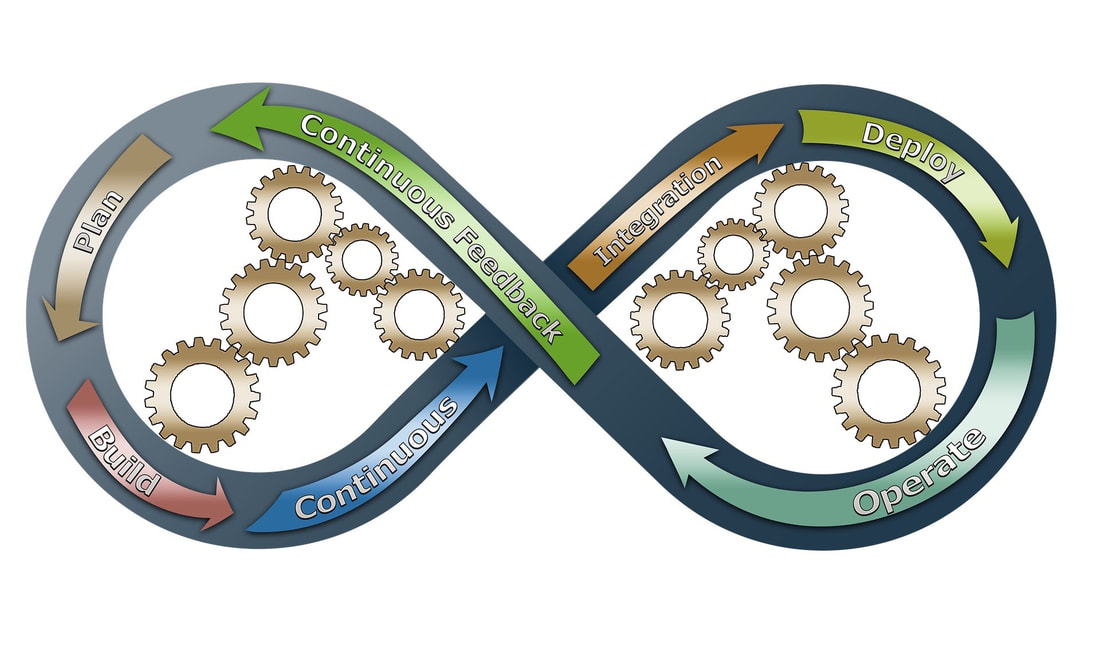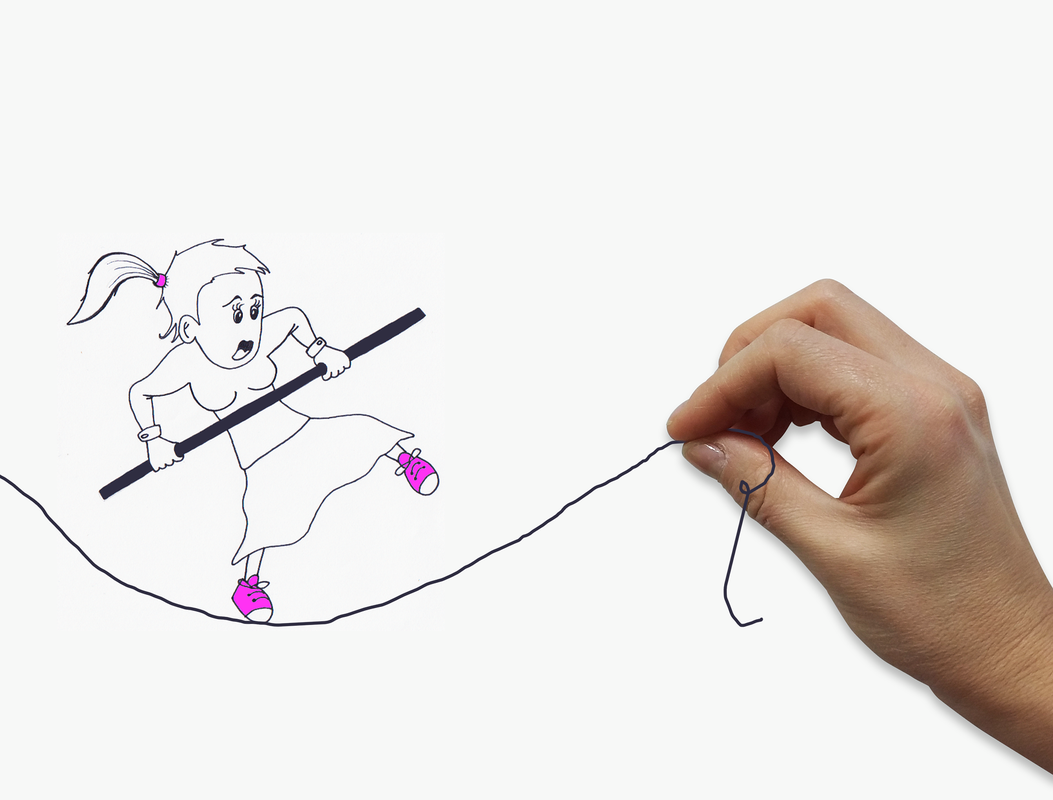During a trip back to Minnesota last year for training on my new job, my trainer whispered conspiratorially, that she thought our manager gave her work, she believed her manager should do. “I’m not the one who has to write the reports”, she said. Earlier in the day, she had spoken to me not so quietly, that the previous payroll person was just awful at the job. “I always had to correct him”, she exclaimed. “He just couldn’t do it. I had to keep telling him the same thing over and over again!” She also told me that the new payroll person, wasn’t picking up the role as quickly as her past experience indicated she could. I didn’t respond to any of her comments; I should have come back with something a lot stronger than silence; my mind wasn’t so quiet. I knew the previous payroll person; He had left the company because of the way my trainer had treated him for the past eighteen months. She had been demoralizing him and criticizing him constantly; in a state of anguish, he finally resigned. He had told me that he really liked the company and the other people that he worked with, but just couldn’t take any more from our trainer. She had made his life unbearable and caused him so much stress and degradation. I was quite astounded that she would also say something about her manager; I believed they were pretty cozy. I learned a long time ago when I lived in Climping (outside of Littlehampton in West Sussex) never to believe what another person tells me about someone else. I was serving in a church leadership position and needed to find someone to oversee the homemaking meeting for the ladies at church. I felt inspired to suggest a particular lady’s name; I will call her Lynn although this is not her real name. Lynn accepted the call to serve as the Homemaking Leader and I worked closely with her. When she was called, I was approached several times about Lynn, with people telling me to be careful as she was a terrible gossip and very unreliable. This information did affect my relationship with her at the beginning. However, I learned very quickly that she was not like that. She was such a sweet lady and would do anything for anyone; she also never talked badly about anyone in my presence. After this specific learning experience, I vowed that I would make my own mind up about people and not listen to what others say. On that trip to Minnesota, I had been working twelve hour days without a break. The day before I flew back home, I took a lunch break for an hour with one of my friends from work, who had been brought into town at the same time. It was nice chatting with her and catching up with each other’s news. When I got back to my desk, I grabbed some papers that I wanted to scan in, so I had access to them when I got back to Utah. Whilst I was at the photocopier, I heard my trainer say to my manager in a surreptitious manner, “She’s back!” That just confirmed to me that the trainer was also talking behind my back, in a derogatory way, as she had done about our manager and the two payroll people. This behaviour is a good example of duplicity - when a person talks about somebody who isn't present, in a critical and demeaning way - but wouldn’t dream of saying the same things to the person if they were there. It is guaranteed that an individual who exhibits this type of behaviour with you, will be saying things about your weaknesses or other untruths to someone else, when you are not there; this is the opposite of integrity. Having integrity means being loyal to those who are not present. In these types of situations, one should defend those who are absent. When you defend these people, you build trust with them. My husband is a very good example of this. Him and his first wife are divorced but he never says a bad word about her; he never runs her down. I know that he will never talk badly about me to someone else, even if we have had a disagreement. In an earlier post, I talked about the acronym of ‘HARD’. This stands for: Honest Appropriate Respectful Direct I spoke about how it was hard for me to be ‘Honest’ and ‘Direct’. I particularly find confrontation and speaking about my feelings difficult. This amounts to dishonesty as I am not being honest due to omission; it also leads to being just like my trainer. I won’t tell the person that I’m upset with them, but I will vent to my husband or a close friend. I do not see much difference between that and the behaviour of my trainer. I am a great fan of Stephen R. Covey and reading his book ‘The 7 Habits of Highly Effective People,’ about sixteen years ago really helped me put all of the pieces of the puzzle together. He says in this book that ‘Integrity includes but goes beyond honest. Honesty is telling the truth - that is to say, conforming our words to reality. Integrity is conforming reality to our words - namely, keeping promises and fulfilling expectations’. He further extrapolated “Integrity also means avoiding any communication that is deceptive, full of guile, or beneath the dignity of people. ‘A lie is any communication with intent to deceive,’ according to one definition of the word. Whether we disseminate with words or behaviour, if we have integrity, our intent cannot be to deceive.” (Pg 195 and 197). Instead of remaining silent when my trainer was sharing information about my manager and the payroll personnel, there is an alternative choice. Stephen Covey puts it like this: ‘... Suppose you were to start criticizing your supervisor and I basically told you that I agree with the content of some of the criticism and suggest that the two of you go directly to him and make an effective presentation, on how things might be improved. Then how would you know, what I would do, if someone were to criticize you to me behind your back?” This is something for me to seriously consider doing when these circumstances present themselves again. That way I will be ‘honest’ and ‘direct’. This will take great courage but it will help me to be congruent with myself. This is what I need to aim for. It is easier to take the course of least resistance: to belittle, to criticize, to betray confidences, to gossip about others behind their back. This is also a form of pride. One form of pride manifests itself when one seeks to build oneself up by pulling another down. Belittling, criticizing and gossiping function to knock the person it is aimed at down; at the same time aggrandizing the perpetrator. Pride is really destructive and possessing, it is the means of destroying an individual, a family, and a society. When one is seeking to build oneself up at the expense of another there is no respect for the other person; there is no love. Stepping all over someone to gain respect or success is detrimental and self-sabotaging. How can one trust a person who does this? The way in which you treat a person says a lot about you. It shows whether you can be trusted or not. What I learned from my parents was to have values and to make choices in my life based on principles. When I interact with any people, I need to do so by maintaining the same set of principles across the board; I wish to be a person who has integrity. There are some cracks in my armour as I have just discussed and my goal is to close up these weaknesses by learning to be honest and direct with those that I associate with. It is a work in progress, but the most important thing is to be moving in the right direction. [email protected]
0 Comments
Quote for the Week I have seen the following quote doing its rounds on Facebook the past couple of months. It seems quite appropriate! “When a toxic person can no longer control you, they will try to control how others see you. The misinformation will feel unfair; but stay above it, trusting that other people will eventually see the TRUTH, just like you did”. - Anonymous [email protected]
So it’s been a tough few weeks emotionally; already feeling tender from the events of the past year, any other incidents just seem to rub me up the wrong way. Three separate incidents happened over the past month each sharing a common thread of being ‘left-out-of-the loop’. The decisions that were made affected my work description and processes, so not really something I should have been left out of. It would have been nice to have been involved in the discussions, but if that wasn’t the plan, then I think it was quite essential to have been informed about the decision, rather than finding out accidentally and realizing that others knew and I didn’t. Being included in the discussion would have been beneficial for me, because I am a team of one, as they told me when I started this job a year ago. “We would like you to run with this job, with the same enthusiasm you have, in all your other positions,” they said. ‘It’s your baby and you can do whatever you need, to be able to do the job.” So changing my responsibilities and processes without my involvement, totally didn’t meet with my expectations. This shouldn’t have come as a surprise to me; I have worked in this company long enough to know, that the exceptions to the rules are the norm. However, to me these two types of communication are conflicting and confusing, as well as embarrassing and upsetting. Besides being hurt and disrespected by being left out of the conversation and not being told of important decisions that affect my processes and how I interact with others, with regards to those processes, I felt invisible, unimportant, humiliated, frustrated and demotivated. Since I am intrinsically motivated to do my work, these feelings work against the sense of ownership of my job and, therefore, my efficiency and production. Having experienced events that my former manager said ‘really stank’ last year and then the emotional abuse from my trainer in this new job, for about ten months, these more recent communication issues lead me to jump to those thoughts again, believing it is a set up to make me leave. Unfortunately, the sum total of these events have almost destroyed my confidence and have left me wondering what is wrong with me - hence my decision to visit with a therapist to get a reality check and to arm myself with tools to move forwards. If I don’t learn these things, then these situations will follow me wherever I go. I have been unable to see my therapist for a few weeks - she is pretty popular! So being distressed about these events, I turned to ..... the internet. Yes, I know, not always the most reliable source of information! When I read things on the web though, I do try to be discerning, discovering who has sponsored the article and look to see what truth I can gleam from each one. I also like to see if the accounts match my principles and values and are inline with eternal truths, that I find in the scriptures. I came across two articles about ‘being kept out-of-the-loop: • “The Hidden Dangers of Leaving Someone Out of the Loop” by Heidi Grant Halvorson. • “Are you being paranoid about being left out of the loop at work?’ by Allison Hirschiag. I resonated more with Heidi’s report, than I did with Allison. I felt minimized by Allison’s words, perhaps because the title and contents of of her writing talks about paranoia and I need validation and an understanding of the situation. To summarize Heidi’s article: First of all it identified that my feelings are reasonable and normal. ‘You [can] expect the excluded person to be, at the very least, a little annoyed’. She said research shows that leaving someone out of the loop, undermines the four fundamental needs: 1. The need for belonging and connecting to others; 2. Self-esteem; 3. The need for a sense of control and effectiveness; and 4. The need for meaningful work. I would probably extend the definition of these four fundamental needs using the six needs of ‘certainty/comfort;' ‘variety;' ‘connection;' ‘significance;' ‘growth;' and ‘contribution’ identified by Derek Doepkoer in ‘The Healthy Habit Revolution.' These needs drive our behaviour by giving us emotional rewards. In essence: 1. The need for belonging and a connection to others; 2. Self-esteem/significance; 3. The need for control and effectiveness or, in other words, certainty and comfort; 4. The need for meaningful work which includes variety, growth and contribution. Studies also show that this leaving someone out of the loop communicates rejection. ‘Human beings are acutely sensitive to social rejection and ostracism’, writes Heidi. It also generates a perception of low status or standing within the group. Along with the rejection and the perception of low status, the behaviour has the following consequences: • A loss of trust; • A loss of loyalty; • A loss of motivation; and • A loss of connection between a boss or colleagues. Heidi further expounds on whether or not leaving someone out of the loop was an intentional or unintentional act, a person may still feel ostracized because if they were respected or important to the other person, they would have remembered. Heidi advises managers to think long and hard about these issues. If they plan to intentionally leave someone out of the loop, they should assess the risk of short-term gains, over the longer and more damaging psychological damage that behaviour inflicts and the resulting loss of trust, cooperation, loyalty and motivation. As much as Heidi addresses the manager’s responsibility, in choosing what action to take regarding this phenomenon, Allison focuses more on the recipient. She advises them to step back from the situation and to reassess it from a different paradigm. She suggests that the receiver takes time out, to make sure they are physically fit and emotionally in control, so that their outlook is not distorted. I think this is good advise as one doesn’t want to act in the heat of the moment. It is better to be proactive than reactive. Once time has been taken to assess one’s outlook, if the circumstances seem to be the same, Allison recommends talking ‘to a confident at work (or a career coach) ‘ to see if these incidents should be investigated further. Allison proposes that an option could be to talk to your boss, but with discernment, as to what you should bring up. Alternatively, one could let it go and learn to live with uncertainty. I think that the latter is pretty hard to do, as it violates the need for a sense of control, effectiveness, certainty or comfort. One has to continue to work in a psychologically damaging atmosphere. Finally, Allison proposes that the recipient has a backup plan and prepares for engagement in another job. In Allison’s article, there was only one affirmation for the recipient’s concerns, regarding being left out of the loop. She cited that ‘studies at Harvard University have shown, that anxious thoughts can have a negative impact on your productivity - which could lead to you actually losing your job’. However there were four negative pronouncements. She states that the recipient should leave paranoia at the door. To me, to address the recipient’s feelings as paranoia is not very validating. Yes, one becomes anxious in these situations, but to suggest that one has a mental disorder due to poorly executed management techniques, seems to be adding insult to injury. The word ‘paranoia’ is a very strong word with highly negative connotations. Allison states that leaving people out of the loop, is a common trigger sparking paranoiac behaviour in the office. She quotes Dr. Menard, who says that recipients ‘expect others to judge them as harshly as they judge themselves, yet they’re almost always wrong.' Being told that what I feel is wrong or that my perceptions of the situation are not valid, is degrading and demeaning. On the other hand, I think that Allison is trying to allude, to the extremes one’s thinking can go, especially if one is a perfectionist. Since I am a perfectionist, you can see an example of this, when I jump to the idea that the whole thing is a set up, to make me leave. I also feel that, in my case, being excluded from discussions for process and job changes, that were in the sphere of my responsibilities, devalues me as a person. It demonstrates that management does not think, that I could come up with a solution to the problem and that my opinions or insights lack value or are meaningless. It leaves me with a feeling that I don’t belong. I find the contrast between Allison and Heidi stark on the the reaction of the recipient. Heidi is saying that it is normal for a human to be angry in this situation, whereas Allison is saying when the recipient reacts, they go to the level of paranoia. Allison winds up her thoughts by concluding ‘If you consistently do good work and add value to the company, there’s often not much more you can do. For example, layoffs can happen for any number of reasons, few of which are directly related to your individual performance.' This really sums up the powerlessness a recipient can feel, when their managers make a habit of keeping them out of the loop on important decisions, meetings, changes to processes, etc. So having read these two articles, what did I learn and how can I apply it to my situation? I think that I rejected the paranoiac concepts. I actually think it is bad manners to not keep someone in the loop; I don’t care who it is. I also think it is poor management, creating a divisive atmosphere in a team. Good communication creates unity and increases productivity. As a recipient of the behaviour, I have zero control over the situation, except to exercise total responsibility for my behaviours and to prepare myself for different employment. Contesting the issues creates more conflict, especially when one is criticizing one’s own managers, who do not acknowledge their weaknesses or do not want to change. I fear drawing appropriate boundaries would probably lead to the need to seek other employment, but would leave one’s self-respect intact. As a leader and teacher in my family and also at church, I can make sure that I try to implement the good practice, of keeping those I interact with in the loop; I can focus on the good in others. I can respect individuals and our diversity. I can value all efforts that people make and can emphasis people’s potential and ability to grow. If I unintentionally mess up, then I can strive to make sure that the person I left out, feels respected and valued. In my efforts to keep and maintain unity in my family and within my church family, I can expect a high degree of bonding, loyalty, motivation and an effectiveness in our efforts to work together. [email protected]
Last time I wrote about the way things lie at work, I posed the question ‘Why not change my job?’ Yes, this is a question that I wrestle with constantly. There are three reasons that keep me in this job right now: Firstly, one of the biggest benefits, working for my current company is that I now work remotely for them. I used to work in the Minneapolis office when I first started. When my husband retired, we decided to move out to Utah so that we could see the grandchildren grow up. We knew that money would be tight and if we continued to live in Minnesota, then we would only be able to afford to go out to Utah maybe every other year. We so wanted to be a part of our grandchildren’s lives. We decided to take a leap of faith and move. If my company didn’t keep me on, the plan was for me to temp and get a permanent position that way. In Minnesota, there are staffing agencies that will place you into a permanent position for a fee to the employer. However, in Utah, they don’t have those types of agencies and prefer a temp-to-hire situation so that the companies here can see if you are a good fit. I approached my boss’ boss and let her know of our plans, asking whether she would like me to continue with the company as a remote employee. I had incorporated process improvements in my job, so that there was no paper involved and I could do the whole thing on the computer. She took it up with her boss who agreed to let me work remotely for three months so that we could get on our feet, with a new home and a job in Utah. We sold our house in Minnesota in a day to a cash buyer and had to be out in three weeks. We moved into our daughter’s basement temporarily and put most of our stuff in storage until we found a place to live. After being in Utah for three weeks, the Chief Financial Officer left the company and my boss’ boss called me to ask if I would like to stay on permanently; we were thrilled. Now knowing that I had permanent job, we looked for a house. It is a wonderful commute to my office. I love working from home, I am really focused and don’t get distracted; except for the past year, I didn’t have to put up with office politics; and I am more productive. The second reason for not changing my job is the financial aspect. There is quite a large salary disparity between the two states of Minnesota and Utah although the standard of living is no different. In fact, food and petrol seems more expensive here. The price of Minnesota housing dropped significantly from 2006 through 2014. We lost most of the equity in our house. Utah’s property prices actually remained stable during that time. My husband and I haven’t quite worked out why, such young people out here in Utah can afford these expensive houses; We certainly couldn’t. There is a high propensity of women staying at home with their children here too. Most couples have two cars. In the States, it is not easy to get around without a vehicle; You can’t really walk to the shops; everything is so big and spacious. Unlike England, the bus services and train services are not as prevalent. In Minnesota, for example, I didn’t even know where the train station was and never saw any signs to it, if it existed. So unlike hopping on a train to get from Fareham to York, I have no idea how one would get on the cross country trains out here. In Minnesota, for one job, I used to take a bus downtown, but it’s not like you could get on a bus and easily go from one town to another; I found the system very hard to navigate. So since my husband is now retired, my salary is important for us to pay the bills. Doing a similar job in Utah would reduce my salary by almost half. The final reason for trying to stick this job out, is because of bullying, this type of conflict follows me around. I have experienced it before in a couple of jobs out here. I do really well in my job for a few years and then another element (person) is introduced to the mix and I get targeted. So there is something in me that really wants to try and make this work. After a few more instances of poor communication and being left out of the loop the past couple of weeks, I’m not sure if I will succeed, but I want to give it one more chance. However, the relationships are pretty shot and I’m not sure if they are repairable. I feel that I no longer have any trust with the people involved and I don’t know how to rectify that since in my perspective, trust has to be earned. [email protected]
|
AuthorPenelope Wren Archives
September 2018
Categories
All
|




















 RSS Feed
RSS Feed

